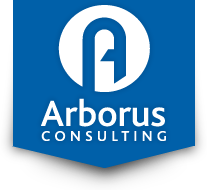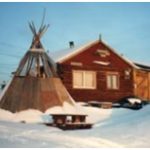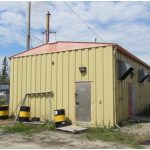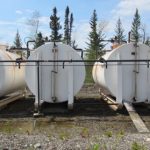Northern & Community Energy Systems
_____________Iqaluit, Nunavut October 2015
Community and District Energy Systems
The key to advancing towards sustainability is through integration of systems that share resources and eliminate waste.
Traditional District Energy Systems (DES): district heating, district cooling, district heating from Combined Heat & Power, and district heating from renewable fuels such as biomass.
The main benefits are the efficiencies of centralized resources such as: fuel sourcing/purchasing, maintenance and operation, and financing by third party utility provider(s). DES also provides the opportunity to exchange energy from buildings with high heat rejection to neighboring buildings with high heating demands.
District Energy Sharing Systems (DESS) are a better alternative for urban systems where energy can be exchanged between buildings and/or a low temperature source of renewable energy is available such as heat recovery from Waste Water Treatment Plants effluent. DESS allows for sharing of heat energy by using heat pumps to either reject or extract heat from the distribution network.
DESS has much lower start up costs and easier phasing of the infrastructure, than a traditional DES. This keeps capital expenditures more in-sync with expanding customer revenues, and is very suitable to adapting to evolving or development of communities, promotes the use of heat recovery and breaks the consumption cycle of the traditional DES.
Advancing Sustainable Communities
Sustainable communities will include district energy, renewables, waste water treatment, solid waste management and food production.
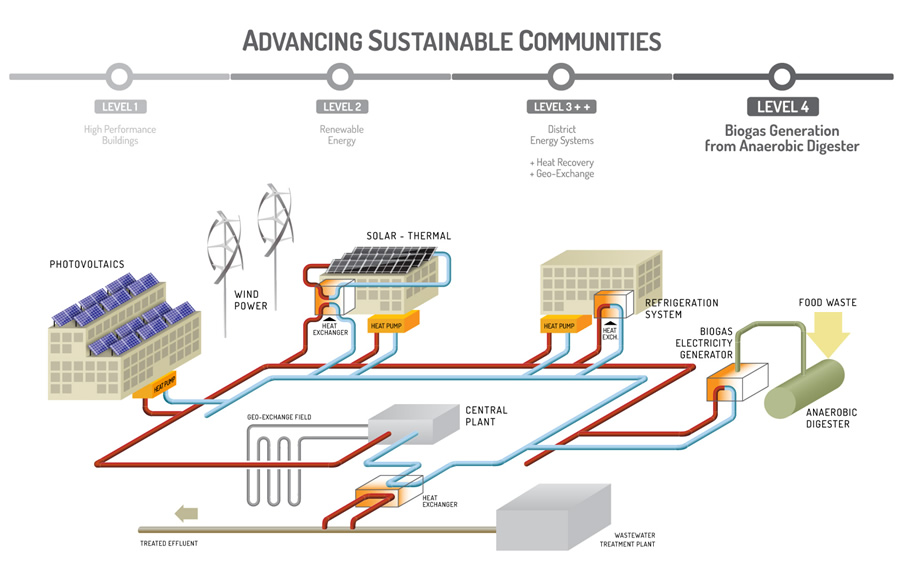
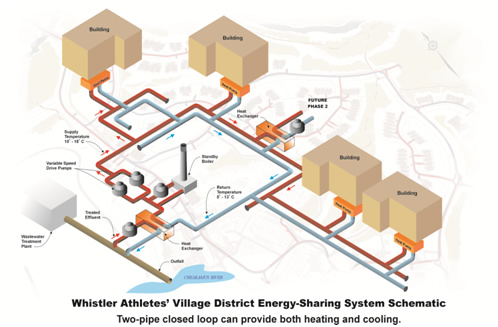
Figure 2 – Courtesy of DEC Engineering

Our Partners DEC Engineering in Vancouver have developed advanced models for district energy systems, including the District Energy Sharing System.
Northern Remote Communities
Remote communities served by diesel-electric generators face high cost of living to power homes, businesses and government and have a very high carbon intensity. Energy security is also a factor for these communities. There are rare instances where community powerplants have run out of fuel in the winter.
Nutrition is also an issue in remote communities. Most communities do not have access to fresh food. There are new growing environments suitable for remote communities. Highly efficient growing units are powered through heat recovery and energy conservation delivered to the community. The addition of the electric load and the combined savings from the community and powerplant results in a net reduction in load.
We have worked in remote communities of the Canadian North since 1995. The president of the company previously work with mission-critical facilities across the Canadian Arctic coast. Arborus has been engaged in number of engineering assignments:
- analyze the renewable energy potential,
- analyze powerplant condition and operability
- Energy conservation upgrades
- High performance design advisory
- Community Energy Planning
- Building commissioning
Our experience working in the north gives us the confidence to explore new ideas to bring more sustainable living models for the challenging environments.
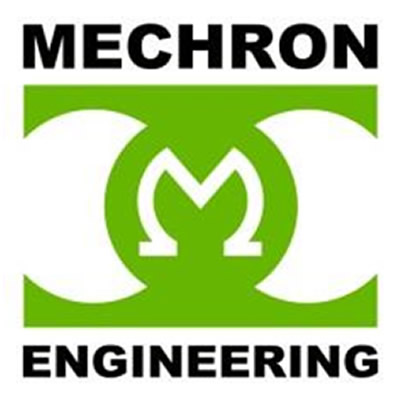
Our Partners Mechron Engineering provide consulting, and design custom powerplants. Arborus and Mechron have been working together for over 10 years and currently have a standing offer together with Quilliq Energy Corporation in Nunavut.
